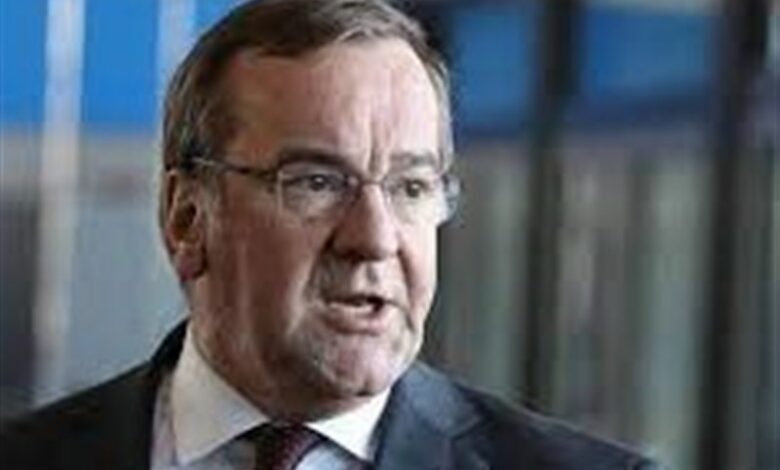The German Ministry of Defense warned the government about the risk of not being able to fulfill its commitments to NATO

| Germany's defense minister has informed the coalition government that the current defense budget is insufficient to meet the goal of increasing defense spending by 2 percent of GDP as promised to NATO. |
According to the report of the international group Tasnim news agency quoting “Focus” publication, if the defense budget of the German army in 2025 does not increase significantly, Germany faces the risk of not fulfilling its defense quota in the NATO military alliance.
Bild magazine reported on this. “Andreas Schwartz”, the budget expert of the Social Democratic Party, told this publication that the budget should be increased in order to fulfill the promise of annual defense spending of two percent of the GDP. He added: “Germany is committed to its allies in NATO. According to him, in order to achieve this goal, the defense budget should increase to an average single digit amount from 2025.
The financial planning of Christian Lindner, the German Federal Minister of Finance, has predicted an amount of 52 billion for the German army next year. According to the calculations of the German Ministry of Defense, this amount is not enough. Accordingly, this is not only the NATO quota but almost the entire budget must be spent on current operations. Only €500 million of the defense budget is left to invest.
Boris Pistorius , the Minister of Defense informed the Chancellor of Germany, Olaf Schultz, and the representatives of the Traffic Light Alliance about this critical financial situation. According to this report, the German Ministry of Defense has entered into negotiations with the Ministry of Finance. But so far, it has not been successful, because Lindner this week in a letter He informed his cabinet colleagues that the department’s upper limits from previous financial planning will apply and that ministries must submit their budget plans based on these amounts by April 19.
In this situation, it is not clear how the Traffic Light Coalition should cope with the increased need for defense spending. On the other hand, Olaf Schultz, the chancellor of Germany, categorically rejected the proposal of Lindner, the federal finance minister, to reduce social costs. According to Bild am Sonntag, Schultz emphasized in internal circles that NATO’s two percent goal must also be met in fiscal year 2025, while ruling out a reduction in social issues. Schwartz also explained: “There will be no spending cuts in the social sector. We will never put social security against military security.” For the last three decades, the German government has reported to NATO that it will achieve a planned defense spending of 2 percent of GDP this year. Military to 2% of GDP has long been set in NATO and long ignored by Berlin.
Thus, for the first time in three decades, Germany reported to NATO that it had reached a planned defense spending of two percent of GDP. The German federal government provided an amount for this year that, when converted to comparative figures from the defense alliance, amounts to $73.41 billion. In absolute terms, this is a record amount for Germany and, based on current NATO forecasts, means a GDP ratio of 2.01%.
Thus with A sharp increase in defense spending, the German federal government reacts in particular to Russia’s attack on Ukraine. By significantly strengthening deterrence and defense, NATO wants to show Russian President Vladimir Putin that an attack on a European NATO country will have no chance of success.
end of message/
| © | Webangah News Hub has translated this news from the source of Tasnim News Agency |


